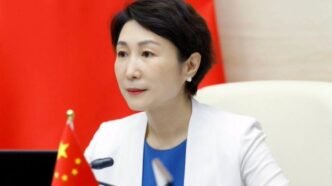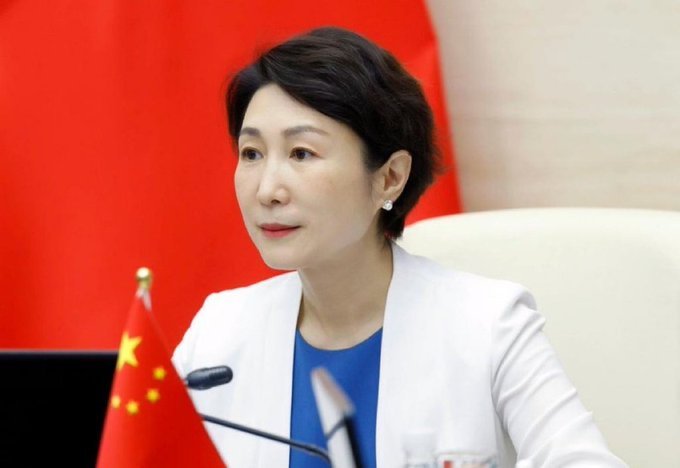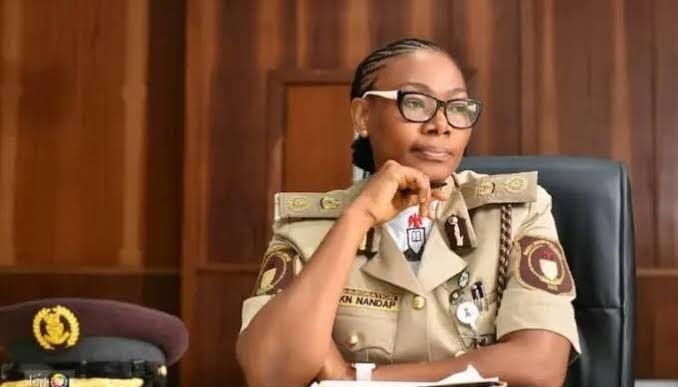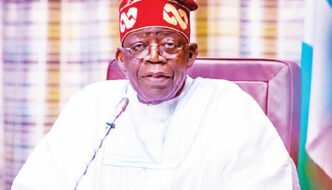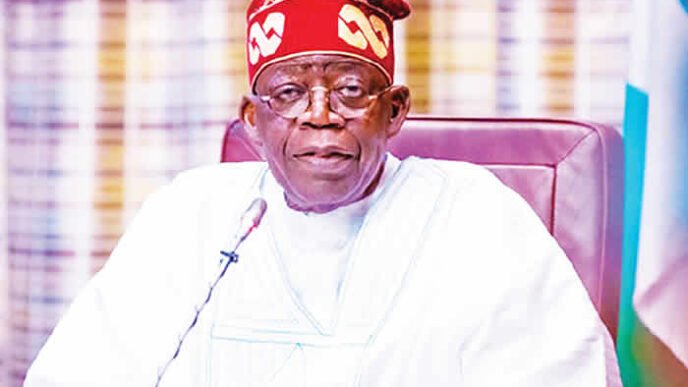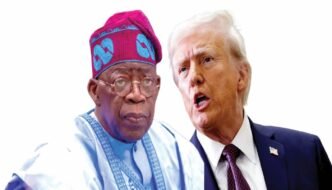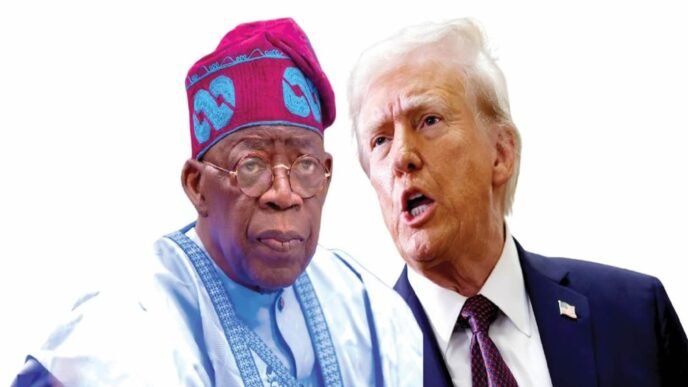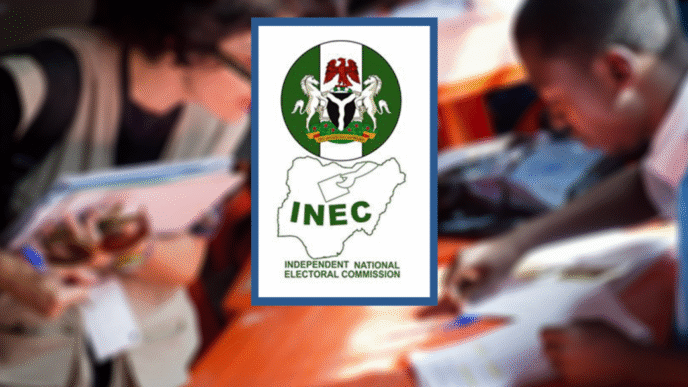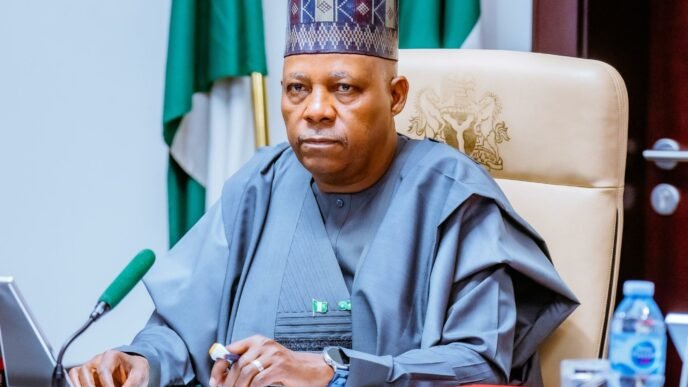The Government of China has cautioned against any form of foreign interference in Nigeria’s internal affairs, declaring its full support for the administration of President Bola Ahmed Tinubu amid escalating diplomatic tension following U.S. President Donald Trump’s recent threat against Nigeria.
China’s position was made known by Mao Ning, spokesperson of the Chinese Ministry of Foreign Affairs, during a press briefing in Beijing on Tuesday.
Reacting to Trump’s controversial comments accusing Nigeria of “genocide against Christians” and threatening possible U.S. action, Mao Ning stated that Nigeria’s sovereignty and stability must be respected, emphasizing that no external power has the right to meddle in the country’s domestic matters.
“China firmly opposes any interference in the internal affairs of sovereign nations. Nigeria is a strategic partner and an important friend of China in Africa. We support the Nigerian government, led by President Bola Tinubu, in safeguarding national unity, security, and development,” Mao said.
China’s Position on the U.S.–Nigeria Dispute
The Chinese government’s statement comes as diplomatic tension grows between Abuja and Washington following remarks by former U.S. President Donald Trump, who accused the Nigerian government of turning a blind eye to attacks on Christians and hinted at possible American intervention.
Trump’s comments, which drew condemnation from the Presidency, the Ministry of Foreign Affairs, and several Nigerian leaders, were described by analysts as unprecedented and inflammatory, with the potential to strain U.S.–Nigeria relations.
In a strong show of solidarity, Mao Ning reiterated that China stands for non-interference, dialogue, and mutual respect among nations, warning that external pressure or military threats could destabilize West Africa’s fragile peace.
“China believes that African countries, including Nigeria, have the wisdom and capacity to handle their internal issues through dialogue and inclusive governance,” she added. “We call on the international community to respect Nigeria’s sovereignty and contribute positively to peace and development, not division or confrontation.”
Beijing’s Strategic Ties with Abuja
China and Nigeria share deep diplomatic and economic ties spanning over five decades, with Beijing being one of Nigeria’s largest trading partners and infrastructure financiers.
Under successive Nigerian governments, Chinese investments have played a major role in railway modernization, power projects, telecommunications, and industrial development.
President Tinubu’s administration has continued to strengthen this relationship through new agreements focusing on infrastructure financing, energy cooperation, and technology transfer.
Mao Ning reaffirmed that China will continue to support Nigeria’s development agenda, particularly in the areas of security cooperation, economic stability, and poverty reduction.
“China respects Nigeria’s independent path of development. We are committed to working together with the Tinubu administration to deepen our comprehensive strategic partnership,” she said.
Background: Trump’s Threat and Nigeria’s Reaction
Tensions escalated over the weekend after Donald Trump, during a campaign rally in Florida, accused the Nigerian government of ignoring the killings of Christians and warned that the U.S. might take unspecified “action” if the situation continues.
The remarks sparked outrage in Nigeria, with the Presidency, through its spokesperson Daniel Bwala, describing Trump’s statement as reckless and baseless.
Bwala said President Tinubu would meet with Trump “in the coming days” to discuss counterterrorism cooperation and religious tolerance, insisting that Nigeria does not tolerate religious persecution.
Similarly, Chief of Defence Staff, General Olufemi Oluyede, in a separate briefing on Monday, dismissed Trump’s claims, maintaining that terrorism—not religion—is Nigeria’s real security challenge.
“There are no Christians being persecuted in Nigeria,” Oluyede said. “We are facing insecurity, especially terrorism, and it has affected all Nigerians regardless of religion.”
The Nigerian government has consistently argued that the Boko Haram insurgency and related violent groups have targeted both Muslims and Christians, and that the conflict should not be framed along religious lines.
China’s Call for Stability and Global Respect
Beijing’s intervention underscores China’s growing diplomatic influence in Africa, particularly in moments of geopolitical tension involving Western powers.
The Chinese Foreign Ministry spokesperson urged all countries to avoid double standards and respect Africa’s political sovereignty, stressing that the continent’s peace and development should not be undermined by global rivalry.
“African countries deserve respect and equal treatment. The world should support Africa’s peace efforts, not sow division or interfere in its internal matters,” Mao said.
China’s statement aligns with its long-standing foreign policy principle of “non-interference in the internal affairs of other nations”, a policy it has applied in dealings with African countries since the 1960s.
Analysts Weigh In
International relations experts have described China’s stance as a calculated show of support for Nigeria and a signal of Beijing’s deepening political engagement in African affairs.
Dr. Chidi Ezeani, a lecturer in international diplomacy at the University of Lagos, told reporters that the statement reflects China’s bid to position itself as a reliable partner amid increasing global polarization.
“China sees an opportunity to contrast its foreign policy approach with that of the United States. By supporting Nigeria’s sovereignty, Beijing is reinforcing its image as a friend of Africa, while indirectly countering U.S. influence,” Ezeani said.
Another analyst, Professor Amina Yusuf, from the Nigerian Institute of International Affairs (NIIA), noted that the timing of China’s statement could strengthen diplomatic confidence in Abuja, especially as Nigeria navigates pressure from Western allies over human rights and security concerns.
“China’s message is both diplomatic and strategic. It reassures Nigeria that it has allies who respect its sovereignty at a time when it faces external criticism,” she said.
Nigeria’s Diplomatic Balancing Act
Nigeria, Africa’s largest democracy, has traditionally maintained a non-aligned foreign policy, balancing relations between Western powers and Asian partners.
Under President Tinubu, Abuja has sought to deepen ties with both Washington and Beijing, prioritizing economic growth, security cooperation, and infrastructure development.
However, analysts warn that escalating tension between the U.S. and China could place Nigeria—and other African nations—in a delicate position, as global powers compete for influence on the continent.
“Nigeria will need to carefully navigate this situation,” said Dr. Ezeani. “While U.S. relations remain critical, China’s political and economic support provides an important counterweight.”
Conclusion
With Beijing’s latest statement, China has joined the growing list of global powers expressing positions on the controversy surrounding Nigeria’s internal affairs and U.S. criticism of its security record.
By publicly backing President Tinubu’s administration and condemning foreign interference, China has reaffirmed its role as a key ally of Nigeria and a defender of sovereignty within the Global South.
As the diplomatic fallout from Trump’s remarks continues, observers say Nigeria’s next moves — including the anticipated meeting between Tinubu and Trump — will determine how the country balances its ties with the United States, China, and other major partners in the months ahead.

